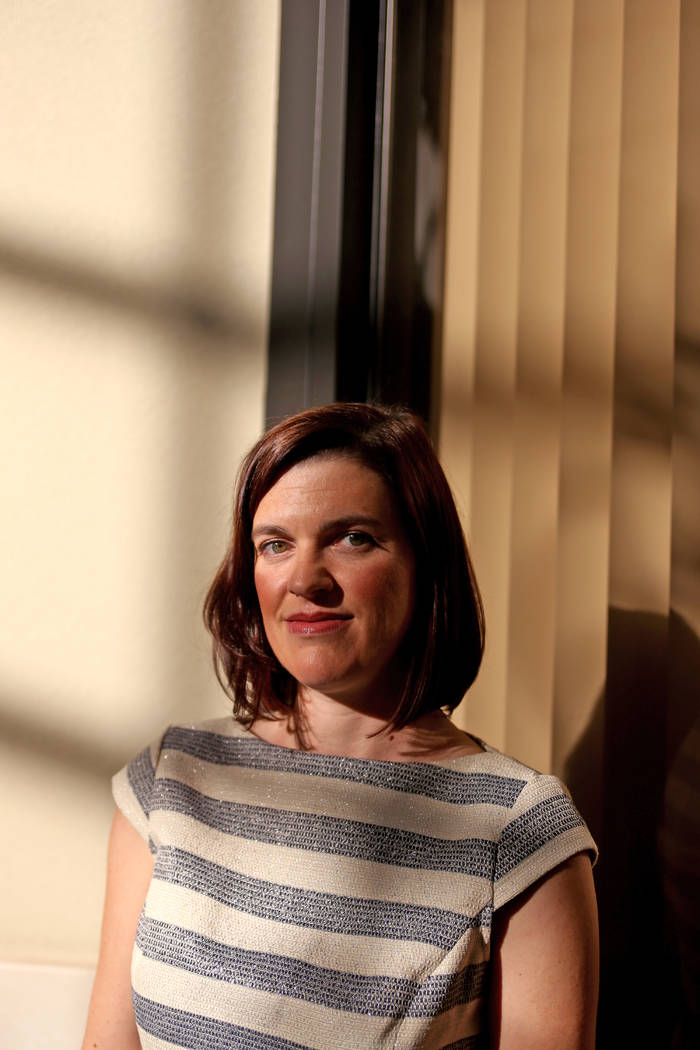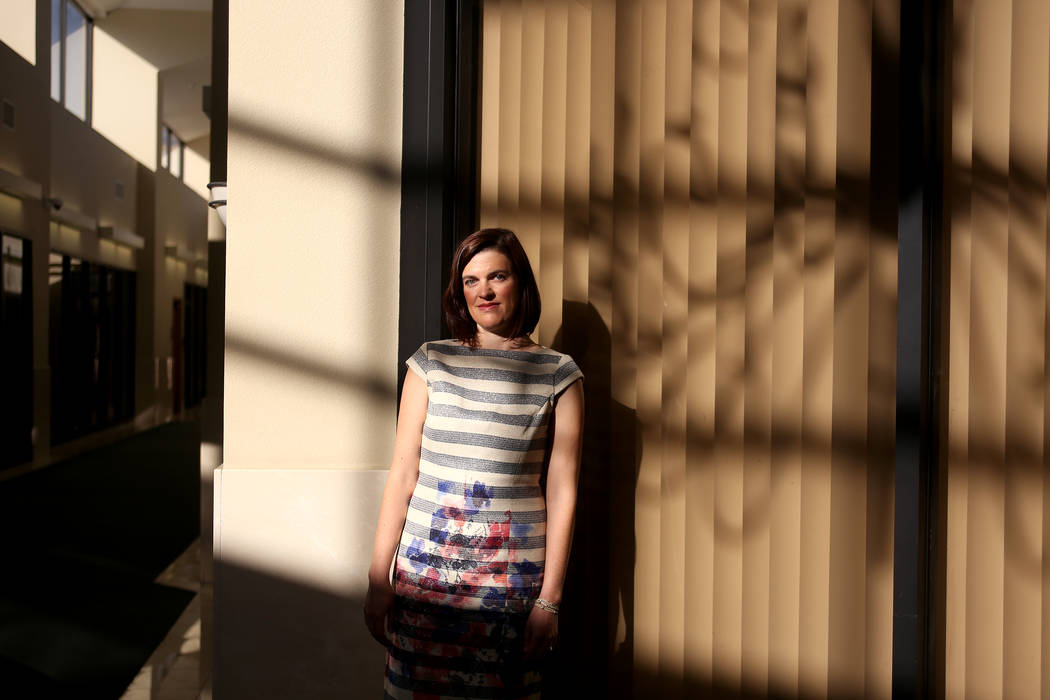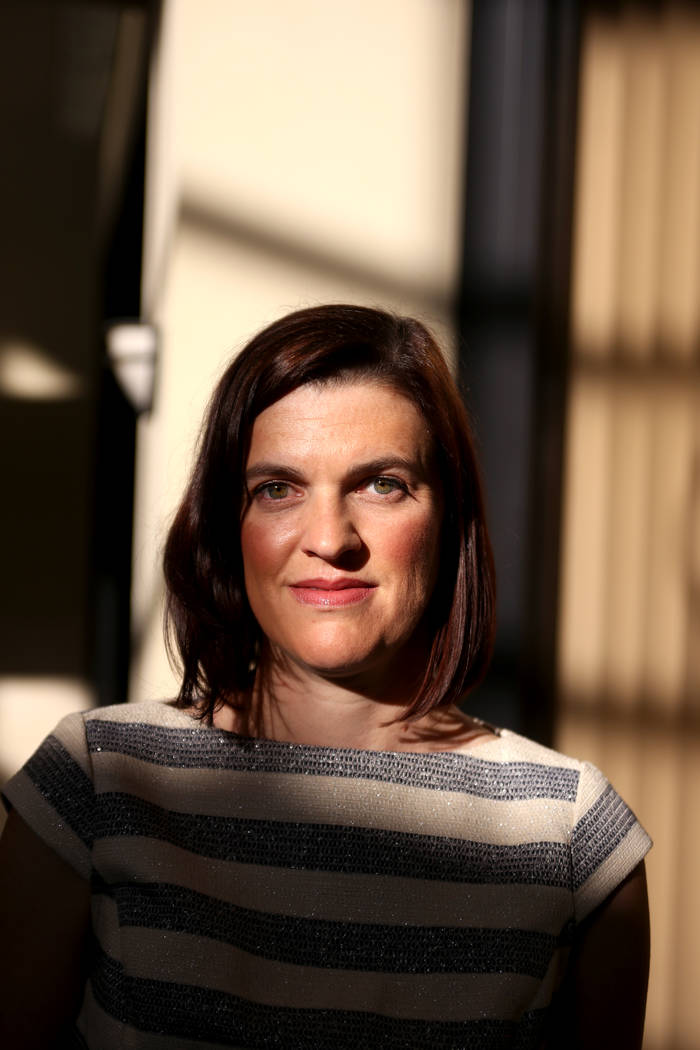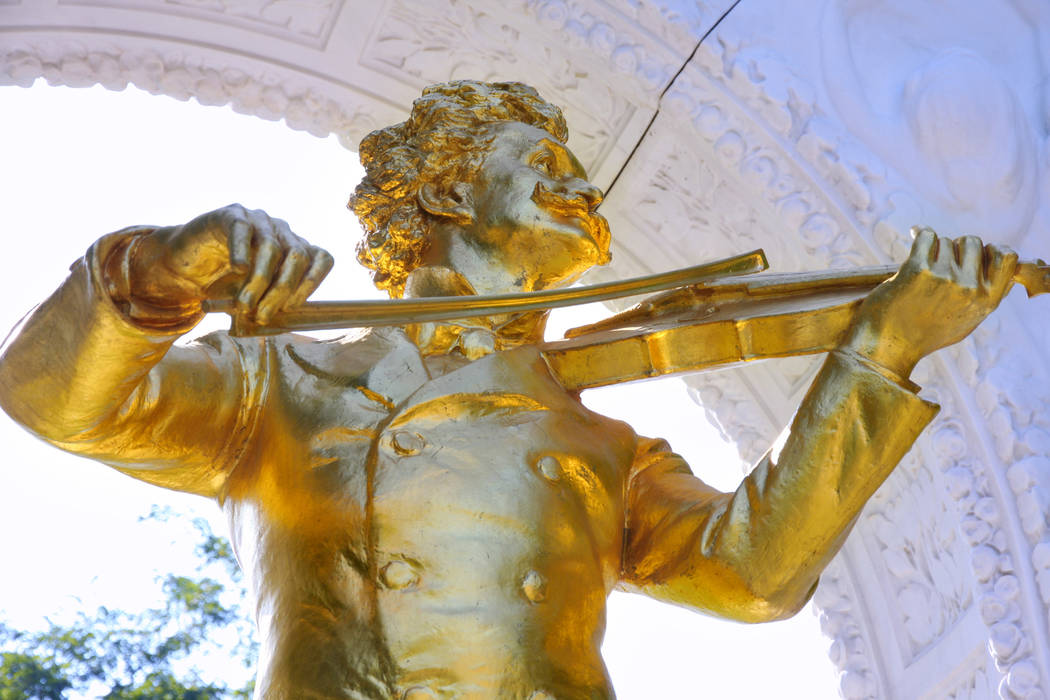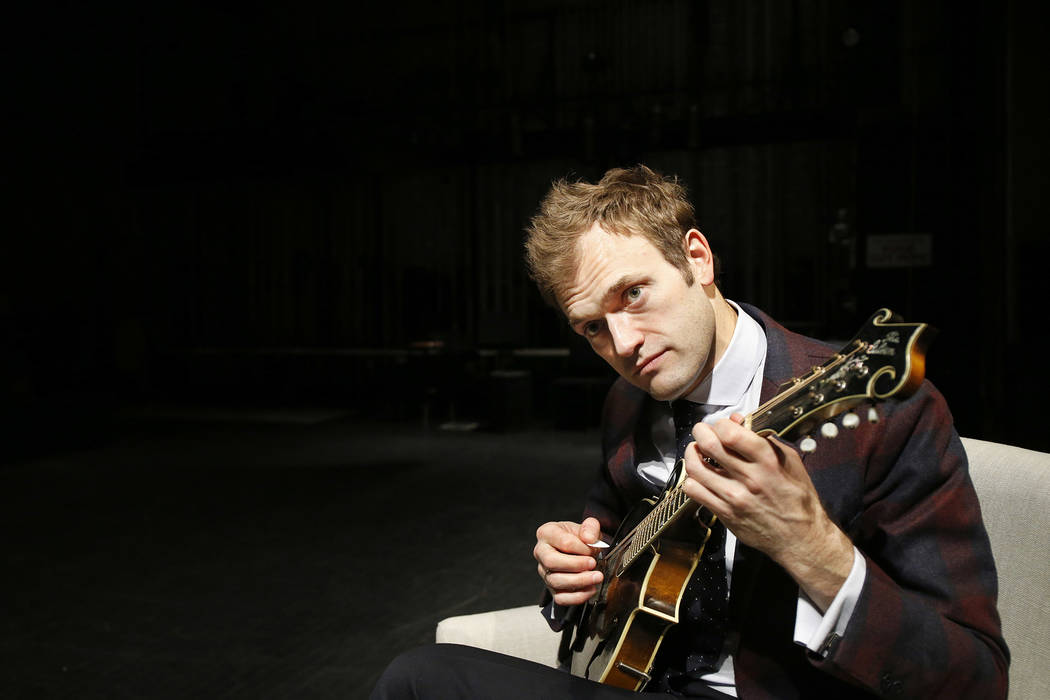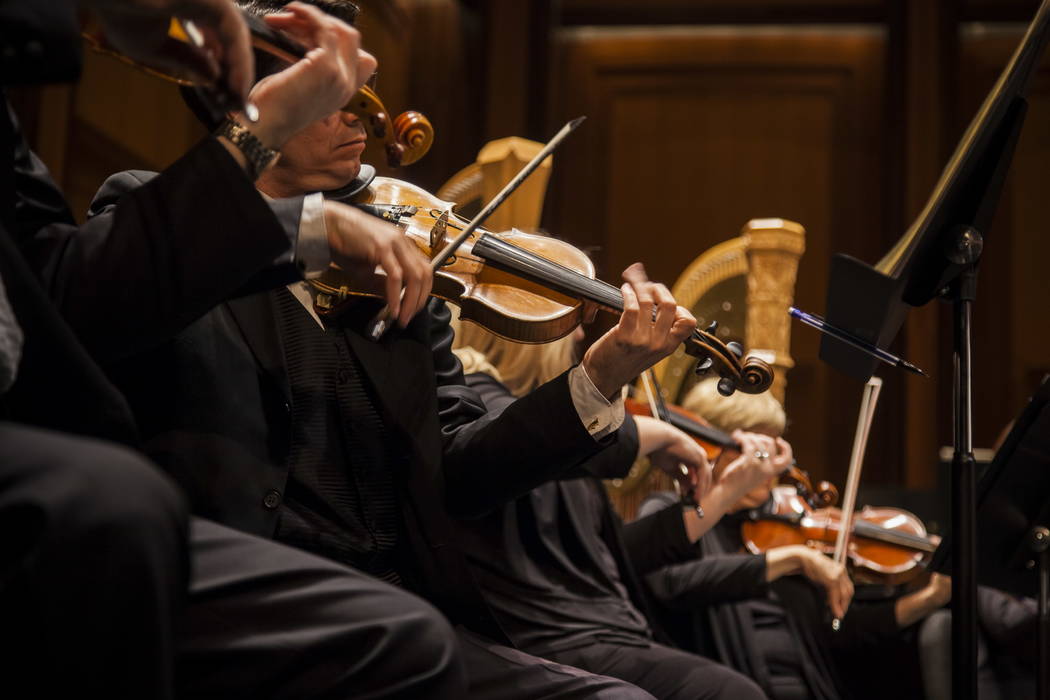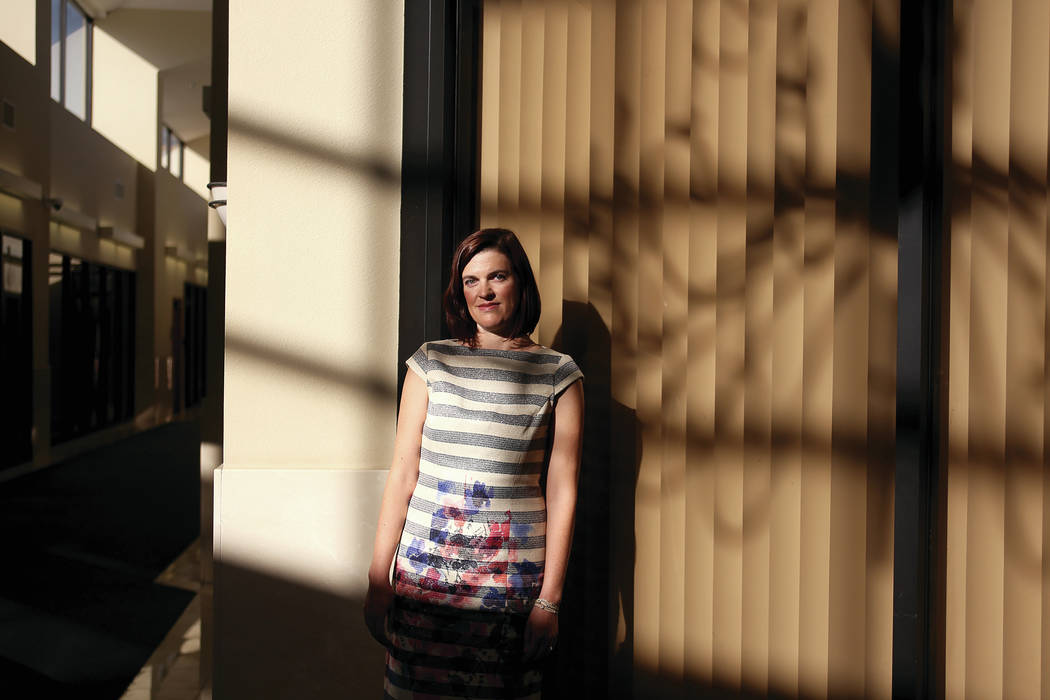New Philharmonic leader helping to create Las Vegas’ cultural identity
Lacey Huszcza, the newly appointed executive director of the Las Vegas Philharmonic, is the type of musician who loves to play but hates to practice.
“Which does not make you a professional musician,” says Huszcza (pronounced Hoosha) with a laugh.
After determining that her French horn likely wouldn’t lead to a career, Huszcza stumbled upon arts administration in her last year at the University of Colorado.
“It was like a lightbulb went off,” says Huszcza about landing a special events and fundraising internship at the Arvada Center of Arts and Humanities. “This is how I get to be involved in the arts and music that I love so much and not have to play scales every day!”
After graduating with a double degree in music and communications, Huszcza moved to Los Angeles.
“I pinpointed Los Angeles Chamber Orchestra as the place I wanted to work,” Huszcza says. “And I politely stalked them until they gave me a job.”
In 13 years with the orchestra, Huszcza worked in every department — most recently as associate executive director.
She was recently recognized in Musical America’s “Top 30 Professionals” for her efforts to improve diversity within the orchestra and imbue the community with art and music.
“High arts have a long history of being viewed as, and probably acting as, elitist organizations,” Huszcza explains. “It’s resulted in not embracing all the communities in which we live.”
She launched the LA Orchestra Fellowship, a program that enabled pre-professional musicians of color to perform with the orchestra, get audition training and receive funding to travel to auditions. “It’s teaching everyone how to get to that audition stage,” Huszcza says.
She also headed “Play Me I’m Yours,” a program that scattered 15 pianos around the L.A. area to be played by passers-by.
While she’s only been in Las Vegas one month, she’s excited for opportunities with the Las Vegas Philharmonic and the city as a whole. “For me,” she says, “it will start with getting to learn about this community.”
Las Vegas Review-Journal: Describe an experience with classical music that really moved you?
Lacey Huszcza: I was in college and playing a piece by Messiaen that was totally modern and weird. Messiaen wrote it when he was in Utah, in one of the canyons. The horn piece is called “Interstellar Call” and you play it as if you’re in the canyon. You play it and then you play something else like an echo — like it’s echoing in the canyon. And there are little bird calls. Once you know the story, it makes the music so much more powerful and interesting. That’s when I realized music was more than a pretty something that happens on the stage, but is something that reflects people’s lives and experiences and can connect with people in a different way. Here’s a thing happening in a concert hall and is a little bit esoteric. But it’s an experience that anyone who’s ever hiked in the mountains or canyons can understand.
Do you find Las Vegas’ arts culture different from L.A.’s?
There are a lot of parallels to L.A. 10 to 15 years ago in that it’s an entertainment city. L.A. was always like Hollywood and Valley girl. Here it’s the Strip. Arts and high arts are still pretty new to the community, and I think Las Vegas is still figuring out what it means to its residents and how to include tourists or not. It’s still creating a cultural identity — which I think is really exciting. It’s all here: ballet, the Arts District, the Smith Center — all these groups are coming together and building a community for Las Vegas.
With other venues for performing arts, is it a challenge to make the Las Vegas Philharmonic stand out?
It could be. But I see it as an opportunity. The more cultural activity there is in a city, the more people want to participate in cultural activity. I would love for all the little companies to be part of Las Vegas. I want to collaborate with local artists to make sure we’re all rising together and bringing the community together.
In a few weeks, the Philharmonic will perform a John Williams concert, and then a number of more accessible pop culture pieces.
John Williams is an amazing composer. And it’s a matter of balance and making sure there’s something for everyone. We have the John Williams concert and then the next one is all Brahms. The thing about the Las Vegas Philharmonic is that there are opportunities for people, no matter what their classical music exposure has been, to come to something and have a great time. Then next time maybe come to something they haven’t tried before and find out they like that too.
How do you make music that is 300 years old relevant to 21st century audiences?
With 300-year-old music, every orchestra will play it a little differently. We’re doing Beethoven 9 at the end of this season. If you hear it in Detroit or Chicago, it will be different than what you hear here, which is exciting. It’s up to the music director and orchestra to make it feel like something special. It’s finding the thing that makes it special for this group of musicians to make it relevant and exciting to this audience.
Why should people care about classical music and the Philharmonic?
Orchestral music has a way of evoking emotion and bringing people together in a way that other music does very differently. It is an opportunity to hear something different, to be carried away by something beautiful or something heart-wrenching. It’s good to have your emotions ignited by something, and then be able to talk about it with your friends or your community. It can be viewed as a beautiful escape from the day to day — and often it is and that has a lot of value — but sometimes it challenges you and makes you think, and that’s amazing.
Contact Janna Karel at jkarel@reviewjournal.com. Follow @jannainprogress on Twitter.
Getting to know: Lacey Huszcza
Favorite composer?
Well I'm a horn player. So my favorite from the old guard is Strauss. My favorite current living composer is Andrew Norman.
Excluding classical music, what do you listen to?
I listen to every kind of music. I love bluegrass, like Chris Thile and the Punch Brothers.
Most recent concert you went to?
The Las Vegas Philharmonic holiday concert.
What will you miss most about Los Angeles?
The beach.
What are you most excited to check out in Las Vegas?
I'm most excited to get to know the little local — everything. Local arts, restaurants, things that make the city tick that aren't part of the Strip.
Favorite recent discovery?
Pizzeria Monzu and the Holiday Cactus Garden at Ethel M Chocolates.




